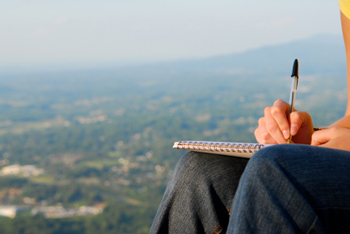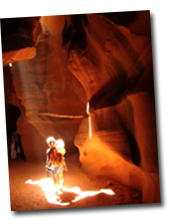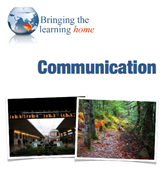Recording Your Experience
International and other international programs can generate concrete and lasting experiences that become part of your academic record or documented as personal and professional achievements, in a way that the average semester at your home university may not. While you’re abroad you may not have the time, or inclination, to focus specifically on recording skills, experiences and achievements in ways that are recognised on résumés or job letters. However, it may be useful to record your journey in some way so that you can refer to it when you return home and begin to unpack your experiences.
 |
|
What’s the point?
A record of your experiences, no matter how brief, can prompt vivid memories in the future. Remember, less than 5% of Australian students undertake international experiences related to their study and that can help you stand out when seeking academic or employment opportunities. Capturing your experiences in some way will help you redraft travel stories into career stories more easily.
From a theoretical perspective, researchers assert that recording experiences helps you create a ‘third space’ … A space that is neither your home nor your host culture. It’s an abstract space where you can store your thoughts, artifacts and images. The creation of this space allows you to become more reflective about your experiences.
What past students say
You may find that you’re so busy whilst you are away that you don't have time to keep up the habit of good record-keeping. Building some record-keeping into your daily routine – for example through some thoughtful use of social media – is one manageable way many students deal with this challenge. One student who studied abroad had to keep a journal as part of her assessment, which she continued to use beyond the academic requirement.
 |
|
What can I do?
Students who have travelled internationally have |
 |
|
If there are things you don’t want to forget like: |
I would encourage people to catalogue or somehow record experiences that they have while they are away, just so that when they get back and they are interviewed or asked about their time in the different country, they can more accurately call upon those memories and recognise where changes took place.
Sharon, international Student.
Write a Blog
Blogs allow you to share personal reflections, photographs, and weblinks, which can be searched or accessed by visitors to the site. Posts can be as descriptive or as succinct as you like. Blogging encourages introspection and more elaborate reflection.
| Tip Box |
There are a number of blogging options available. Here are a few user-friendly options to consider: |
Create a photo passport
Photos offer you rich and powerful representations of your experience. They are a great way of recording things that surprise, shock and startle. Photos enable you to remember both the moment of the taking, and those around you at the time. They provide the impetus for memory recall – the floodgate of memories takes you back to what you saw, smelt, heard and felt.
Explaining or describing photos, whether online or face to face, stimulate introspection, reflection, and self-discovery. If you use Instagram or Twitter to capture your experiences, think about adding a hashtag (e.g. #studyabroad) to highlight the photos that may have personal, cultural, academic or employability significance for you.
|  |
Use Facebook
Facebook allows you to share messages, photos, links to websites and posts about what you are doing. Although you may use your Facebook page for keeping in touch with your social network, it can be a useful tool to record experiences that may have professional benefit down the track. Consider publishing posts that act like a ‘note to self’ to help you remember things when you return. Maybe use a bookmark that you can search for later.
Use a Note Pad
If you’re in a location where the Internet is unreliable, you can still record experiences!
If you’ve never kept a journal before, consider starting one now. Use a note pad or scrapbook to:
Useful Resource
 |
If you’re keen to find out more information about recording your experiences whilst studying abroad, the Communication Module created for Bringing the Learning Home project is a great resource. The module highlights things such as: |
Enjoy your international experience. Check back in for more tips in the "Coming Back" module when you have settled in at home and you’re keen to unpack your international experiences.
